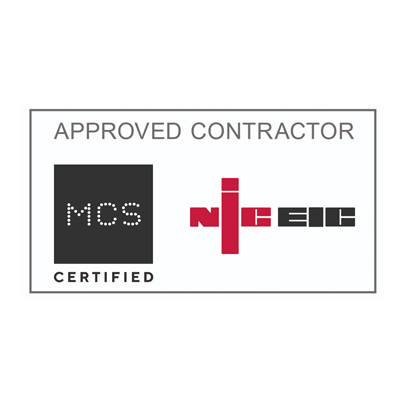October 22, 2024
The role of solar in commercial premises during an energy crisis

As the energy crisis continues to bite, solar technology leader Solivus explores the increasing importance of self-generation to enable premises to safeguard against future price hikes and gain energy security.
It’s easy to see why the energy transition has become such a priority for many commercial building operators. With their vast open spaces and large-scale infrastructure, most commercial premises demand considerable energy. Combine this with the fact that an estimated 30% of commercial energy is wasted, and the result is a recipe for colossal energy use and a very hefty utility bill. Moreover, continued energy price volatility, with further hikes planned this autumn, is making it even more expensive to operate these types of properties.
The result is a renewed focus on the transition to clean energy sources, not just to meet sustainability targets but to gain energy independence and safeguard from future price hikes.
One obvious solution lies in solar. With their vast, unobstructed spaces, commercial roofs offer vast canvases to capture the sunlight necessary to produce clean energy via solar, holding immense potential for energy efficiency and cost savings. In fact, it is estimated UK commercial buildings could save £35 Billion annually with solar installations.
In this way, solar energy can provide operators with more energy security through the ability to generate free clean energy and remove the need to purchase peak-time electricity from the grid, while protecting them from traditional energy market price fluctuations.
It goes without saying too that investing in solar can hugely reduce an operation’s carbon footprint and improve its ESG credentials, something which is becoming a more important consideration amongst investors, stakeholders and consumers alike.
An innovation leap
Of course though, this approach hasn’t always been possible for many commercial operators. This is because inherently solar has been confined to robust permanent structures able to withstand the weight of rigid roof-mounted solar panels and therefore not suitable for many hangars, warehouses, stadiums and other commercial buildings. But in a marked innovation leap, a new generation of innovative lightweight solar – offering a fraction of the weight of conventional panels and with more universal applications for fixing methods – has opened up new roof space opportunities.
A great example of this opportunity can be found in Solivus’ recent work with Northamptonshire County Cricket Club (NCCC). Hereby, as part of its commitment to sustainability, the club sought to take advantage of the self-generation opportunity afforded by solar. However, the stadium’s extensive roof, like many sports centres and stadiums, wasn’t able to take the weight of traditional glass solar panels.
Cue the game changer: Solivus’ lightweight solar systems. Unlike traditional solar installs, Solivus’ systems use flexible lightweight panels which are up to 70% lighter than traditional panels.
Constituting a step change in solar innovation, the solution comprises a 2x1m fibre-glass board, at a thickness of just 2mm, embedded with photovoltaic cells of less than 1mm depth. Despite a seriously thin form the result is a powerful performance rated at over 19% efficient – which is similar to that of heavier panels.

Commissioned in March 2023, the final system comprised a total of 221 lightweight solar panels. A year later, and the latest operational data has shown that not only has the system decarbonised the stadium by producing cleaner, greener energy, but also enhanced the financial returns for the club. As of August 2024, operational data reveals the installation has seen total estimated savings for NCCC of over £20,000, with an annual ROI of 10.8%. To date, the installation has saved over 15,900 kg of CO2e.
Underscoring this too is a dedicated operations and maintenance (O&M) programme designed to ensure the project continues to reach its full value potential. This is supported with a five-year workmanship warranty, a twelve-year product warranty and a twenty-five-year performance warranty.
Full potential
As energy market volatility continues to take its toll, it’s clear that the commercial sector’s energy transition need is an urgent one. By taking heed of the latest lightweight solar technologies, the good news is that it becomes possible to secure energy independence by unlocking the full potential of the power of renewables.
For more information please visit www.solivus.com
About Solivus
Solivus are on a mission to decarbonise the built environment by making it as easy as possible for commercial buildings and homeowners to self-generate their own clean energy and save money with its ultra-thin and lightweight solar solutions.
On the commercial side, Solivus overcomes weight issues with its innovative lightweight solar solutions. This includes large commercial buildings, such as warehouses, hangars, stadiums and large offices, with it estimated that 40% of buildings cannot take the weight of conventional solar.
For homeowners, the Solivus Arc is a designer solar sculpture for the home, designed to overcome the aesthetical challenges associated with traditional solar panels.
Solivus are a winner of the Department for International Trade’s Green Builder of Tomorrow Prize 2022, are a Tech Nation 2.0 Alumni, and have been voted one of J.P. Morgan’s Top 200 Female Powered Businesses. Solivus are the energy behind lightweight solar.
Related Articles

ACCREDITATIONS


















